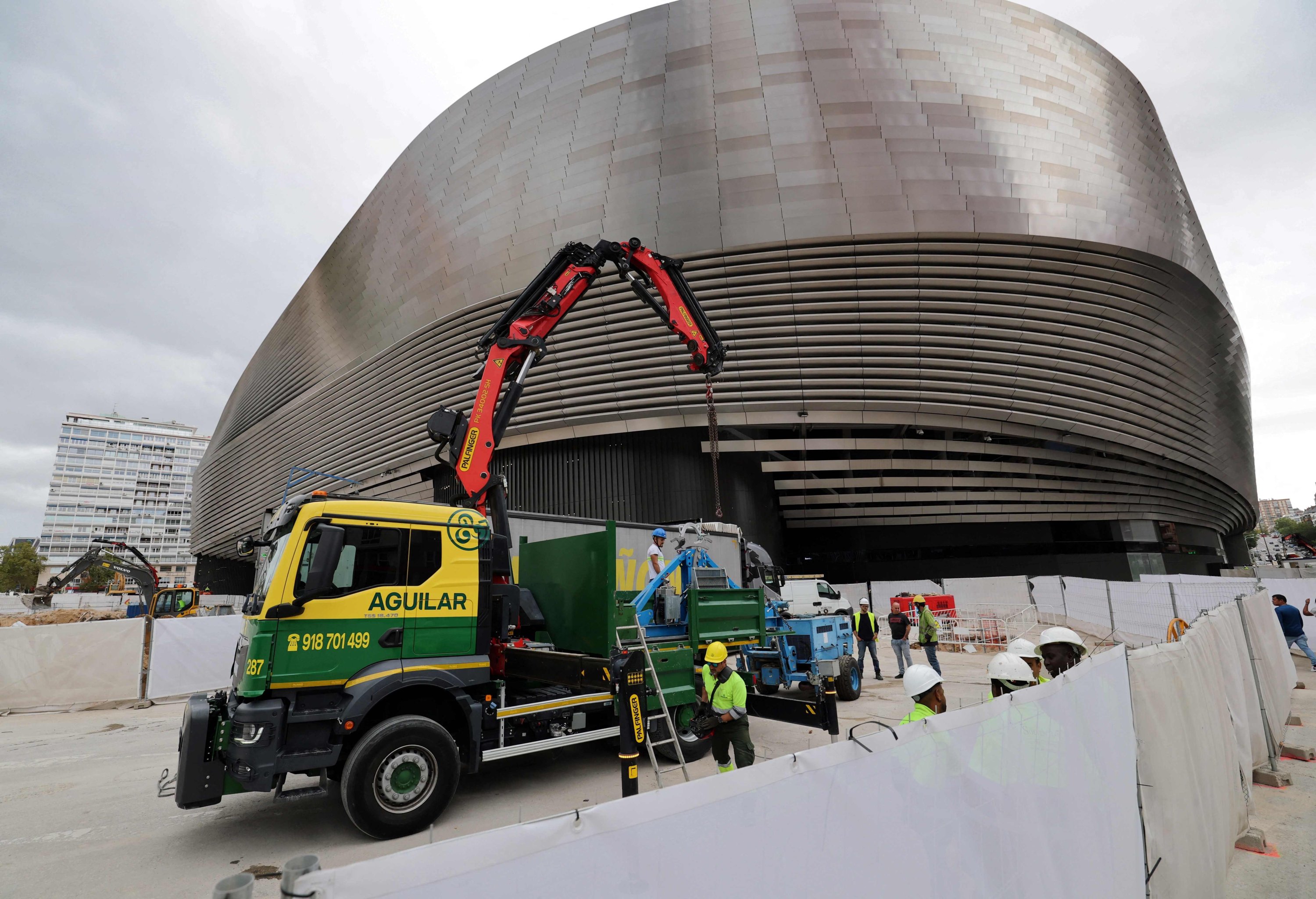© Turkuvaz Haberleşme ve Yayıncılık 2026
Real Madrid's ambitious revamp of the iconic Santiago Bernabeu Stadium has sparked local unrest, with residents protesting noise from concerts and ongoing construction.
The stadium, after years of renovation, featuring a sleek metal roof, modern lighting, VIP areas and a retractable pitch, resumed hosting events earlier this year.
Originally opened in 1947 as a football venue, the goal is to transform it into a year-round entertainment hub.
Pop sensation Taylor Swift and Grammy-winning Karol G are among the major stars to perform at the revamped stadium, owned by Real Madrid and spearheaded by billionaire president Florentino Perez.
The wealthy Chamartín neighborhood in northern Madrid, where the stadium is located, used to be quiet except on match days. Now, residents complain of noise during concerts and rehearsals that far exceeds legal limits, and of drunken concertgoers urinating in doorways.
Luis Eusa, a university student, said his grandparents’ apartment, located across the street from the stadium, “rumbles when there are concerts.”
“A lot of elderly people live in the neighborhood, and they are not used to the noise so late in the evening,” he told Agence France-Presse (AFP).
Angry residents of apartment buildings near the stadium have put up banners on their balconies that read: "NO concerts."
The stadium has gone from hosting some 35 events per year before the refurbishment to planning more than 300, according to the Association of People Affected by the Bernabeu, one of the neighborhood organizations set up to fight against “the negative impacts” of the redevelopment.
The group argues that the refurbished stadium – now with 84,000 seats, up from 81,000 – is not properly soundproofed, and its new, powerful loudspeakers do not comply with noise regulations.
Real Madrid has taken out three loans totaling 1.17 billion euros ($1.28 billion) since 2018 to renovate the stadium, with the aim of turning it into a major source of revenue.
Those plans may be in jeopardy. The club announced last month that it was suspending all concerts at the stadium while it tries to resolve the noise issue.
Real Madrid said at the time that its goal “will always be that the stadium's activities guarantee its commitment to the city of Madrid and are beneficial to its surroundings.”
Contacted by AFP, the club declined to comment further.
Gonzalo, a pensioner who was walking his dog near the stadium and did not want to give his last name, said residents doubt Real Madrid will keep its word.
“We don’t believe in Real Madrid or the city hall. They sold us that this would be wonderful, and they have tricked us,” he told AFP.
Adding to the club’s woes, a Madrid court on Sept. 26 ordered a temporary halt to construction work on the stadium’s new underground parking garage and a tunnel to allow large vehicles, such as trucks carrying concert equipment, to pass under the stadium. The order followed complaints over the concession contract for the project.
The parking garage is being built on public land given as a concession by Madrid’s city hall, leading to accusations that Mayor Luis Martinez Almeida – a fan of Real’s cross-town rivals Atletico Madrid – had favored Perez.

Part of the problem is that, unlike most other stadiums, such as Atletico Madrid’s Metropolitano located on a large esplanade on the outskirts of the Spanish capital, Real Madrid’s stadium is very close to residential buildings.
“Football is on match day and that’s it,” said Manuel Amaro, 62, who has worked for the past nine years as a superintendent at a building on a street facing Real’s stadium, where the club’s fans often gather to drink beers before a game.
“Nobody is happy” with the new stadium, he added.
